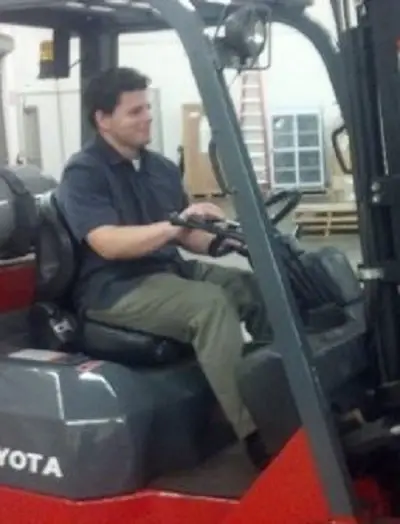These careers play a role in increasing efficiency and/or reducing the environmental impact of various modes of transportation including trucking, mass transit, and freight rail.
Aerospace Engineers
perform engineering duties in designing, constructing, and testing aircraft, missiles, and spacecraft. May conduct basic and applied research to evaluate adaptability of materials and equipment to aircraft design and manufacture. May recommend improvements in testing equipment and techniques.
$121110
Bachelor's degree
High job satisfaction
Electronics Engineers
research, design, develop, or test electronic components and systems for commercial, industrial, military, or scientific use employing knowledge of electronic theory and materials properties. Design electronic circuits and components for use in fields such as telecommunications, aerospace guidance and propulsion control, acoustics, or instruments and controls.
$112320
Bachelor's degree
Transportation Managers
plan, direct, or coordinate the transportation operations within an organization or the activities of organizations that provide transportation services.
$105100
Bachelor's degree
High job satisfaction
Personality Match
Logistics Managers
plan, direct, or coordinate purchasing, warehousing, distribution, forecasting, customer service, or planning services. Manage logistics personnel and logistics systems and direct daily operations.
$105100
Bachelor's degree
High job satisfaction
Personality Match
Supply Chain Managers
direct or coordinate production, purchasing, warehousing, distribution, or financial forecasting services or activities to limit costs and improve accuracy, customer service, or safety. Examine existing procedures or opportunities for streamlining activities to meet product distribution needs. Direct the movement, storage, or processing of inventory.
$105100
Bachelor's degree
High job satisfaction
Personality Match
Mechanical Engineers
perform engineering duties in planning and designing tools, engines, machines, and other mechanically functioning equipment. Oversee installation, operation, maintenance, and repair of equipment such as centralized heat, gas, water, and steam systems.
$95560
Bachelor's degree
Fuel Cell Engineers
design, evaluate, modify, or construct fuel cell components or systems for transportation, stationary, or portable applications.
$95560
Bachelor's degree
High job satisfaction
Automotive Engineers
develop new or improved designs for vehicle structural members, engines, transmissions, or other vehicle systems, using computer-assisted design technology. Direct building, modification, or testing of vehicle or components.
$95560
Bachelor's degree
High job satisfaction
Transportation Engineers
develop plans for surface transportation projects, according to established engineering standards and state or federal construction policy. Prepare designs, specifications, or estimates for transportation facilities. Plan modifications of existing streets, highways, or freeways to improve traffic flow.
$95440
Bachelor's degree
Strong job growth
High job satisfaction
Vehicle Inspectors
inspect and monitor transportation equipment, vehicles, or systems to ensure compliance with regulations and safety standards.
$81320
No degree required
Strong job growth
Logistics Engineers
design or analyze operational solutions for projects such as transportation optimization, network modeling, process and methods analysis, cost containment, capacity enhancement, routing and shipment optimization, or information management.
$79830
Bachelor's degree
Strong job growth
High job satisfaction
Personality Match
Logistics Analysts
analyze product delivery or supply chain processes to identify or recommend changes. May manage route activity including invoicing, electronic bills, and shipment tracing.
$79830
Bachelor's degree
Strong job growth
High job satisfaction
Personality Match
Transportation Planners
prepare studies for proposed transportation projects. Gather, compile, and analyze data. Study the use and operation of transportation systems. Develop transportation models or simulations.
$79410
Bachelor's degree
Personality Match
Locomotive Engineers
drive electric, diesel-electric, steam, or gas-turbine-electric locomotives to transport passengers or freight. Interpret train orders, electronic or manual signals, and railroad rules and regulations.
$70660
No degree required
Fuel Cell Technicians
install, operate, or maintain integrated fuel cell systems in transportation, stationary, or portable applications.
$67640
Post-secondary certificate
High job satisfaction
Personality Match
Railroad Conductors and Yardmasters
coordinate activities of switch-engine crew within railroad yard, industrial plant, or similar location. Conductors coordinate activities of train crew on passenger or freight trains. Yardmasters review train schedules and switching orders and coordinate activities of workers engaged in railroad traffic operations, such as the makeup or breakup of trains and yard switching.
$65440
No degree required
Personality Match
Automotive Engineering Technicians
assist engineers in determining the practicality of proposed product design changes and plan and carry out tests on experimental test devices or equipment for performance, durability, or efficiency.
$60880
Associate's degree
High job satisfaction
Personality Match
Track Equipment Operators
lay, repair, and maintain track for standard or narrow-gauge railroad equipment used in regular railroad service or in plant yards, quarries, sand and gravel pits, and mines. Includes ballast cleaning machine operators and railroad bed tamping machine operators.
$57430
No degree required
Personality Match
Bus and Truck Mechanics
diagnose, adjust, repair, or overhaul buses and trucks, or maintain and repair any type of diesel engines. Includes mechanics working primarily with automobile or marine diesel engines.
$52090
No degree required
Strong job growth
CDL Truck Drivers
drive a tractor-trailer combination or a truck with a capacity of at least 26,001 pounds Gross Vehicle Weight (GVW). May be required to unload truck. Requires commercial drivers' license. Includes tow truck drivers.
$48710
No degree required
Strong job growth
Transit and Intercity Bus Drivers
drive bus or motor coach, including regular route operations, charters, and private carriage. May assist passengers with baggage. May collect fares or tickets.
$48110
No degree required
Strong job growth
Freight Forwarders
research rates, routings, or modes of transport for shipment of products. Maintain awareness of regulations affecting the international movement of cargo. Make arrangements for additional services, such as storage or inland transportation.
$47170
No degree required
Strong job growth
Personality Match
Auto Technicians
repair only one system or component on a vehicle, such as brakes, suspension, or radiator.
$46760
Post-secondary certificate
Strong job growth
Dispatchers
schedule and dispatch workers, work crews, equipment, or service vehicles for conveyance of materials, freight, or passengers, or for normal installation, service, or emergency repairs rendered outside the place of business. Duties may include using radio, telephone, or computer to transmit assignments and compiling statistics and reports on work progress.
$44860
No degree required
Strong job growth
Personality Match
Industrial Truck and Tractor Operators
operate industrial trucks or tractors equipped to move materials around a warehouse, storage yard, factory, construction site, or similar location.
$39210
No degree required
Shipping, Receiving and Traffic Clerks
verify and maintain records on incoming and outgoing shipments involving inventory. Duties include verifying and recording incoming merchandise or material and arranging for the transportation of products. May prepare items for shipment.
$37210
No degree required
Personality Match

.jpg)

.jpg)
.jpg)

.jpg)




.jpg)

.jpg)


.jpg)
.jpg)
.jpg)
.jpg)

.jpg)
.jpg)
.jpg)
.jpg)
.jpg)
.jpg)
.jpg)
.jpg)
.jpg)
.jpg)
.jpg)
.jpg)

.jpg)

.jpg)
.jpg)
.jpg)







